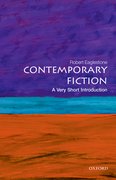By Robert Eaglestone
So here’s the first thing about the books on the Booker Prize lists, both short and long: until the end of August, it was hard-to-impossible to get hold of most of them. Only one was in paperback in July (well done, Canongate). And while some were in very pricey hardback, several hadn’t even been published. This begs the question: who is the Booker Prize for? If it’s supposed to encourage wider reading, debate and book sales, that’s hard for us and for bookshops if the books just aren’t available. If people outside the world of media reviewers and publishers can’t read the books – I couldn’t and I teach and write about contemporary fiction – then isn’t this all just a little bit strange? It makes the whole thing seem like a game played by an enclosed elite or (hardback prices being what there are) a publishers trick.
Still, eventually I was able to buy some, including four on the outstanding shortlist. I was sorry Donal Ryan’s The Spinning Heart didn’t make the cut. A multi-voiced, pitch-perfect account of post-Crash Irish life, I thought this was a wonderful novel, deep things carved small and accurate.

In contrast to Crace’s unreliable storyteller, Mary, the mother of Jesus, the narrator of Colm Tóibín’s The Testament of Mary, is trying to separate what actually happened from what she wished happened and from what other people – rather sinister Evangelists – want to say happened. It’s an odd accompaniment to J. M. Coetzees’s The Childhood of Jesus, also published this year, which focusses on a Joseph-like figure, transposed to an unnamed country. This very short novel – also a historical novel of sorts – is incredibly intense and really rather beautiful, and less controversial than the press presents it, I think.
NoViolet Bulawayo’s debut novel, We Need New Names is also narrated in the first person: a child growing up in Zimbabwe. Children’s voices are hard to do, but this novel gets the tone and level of detail just right. In 2005, Binyavanga Wainaina wrote a savage satirical piece called ‘How to Write about Africa’, attacking stereotypical representations in fiction and the first half of this novel does rather fall foul of this: however, as the book goes on and especially after the narrator emigrates, it turns into something more challenging, reminding me of work by the great Nigerian novelist Buchi Emecheta.
At the core of Ruth Ozeki’s A Tale for Time Being is another first person narrator: Nao, a Tokyo teenager, dealing with a range of problems. Her sections are brilliantly written (and when the novel turns to the other narrator, the authorial Ruth, it sags a little). The core of this very contemporary novel is the interconnectedness of things, and in it, stories uncover stories, trauma uncovers trauma, discussions of zen lead to discussions of physics, of philosophy and of the heart. It could have done with more Ruth-less editing – it’s too long, as if the author was desperate to cram in more and more – but apart from that it really grows on one.
I’ve not read the much praised and just published The Luminaries by Eleanor Catton (832 pages long…) but the start – again, a historical novel – looks promising. Similarly, Jhumpa Lahiri’s The Lowland, again, just published, seems to be getting good reviews.
Overall, then, three historical novels (even if one is a bit unfixed in time), three and a half (Nao is the half!) first person narrators, and, as everyone has said, a very culturally and geographically diverse field. Interestingly, religion features significantly in the four of them I’ve read (Mary, obviously; Crace’s narrator makes much of the village’s unbuilt church; Bulawayo’s narrator is involved with Christian fundamentalists and a lot of Ozeki’s book concerns Zen Buddhism). Perhaps there’s something in the water.
Robert Macfarlane is an outstanding literary critic (and writer) and his committee has produced one of the most interesting lists for years, one which brilliantly shows off the aesthetic and intellectual vibrancy of contemporary Anglophone writing. Still having two to read, I’m not going to predict anything, but any of the novels I’ve mentioned above would be great winners. They, and most of the long list (especially Ryan’s The Spinning Heart, Richard House’s The Kill, and Charlotte Mendelson’s Almost English), would spark fascinating reading group conversations and are well worth picking up.
It would have been even better (for the general reader, for the bookshops) if we could have read them all first, though.
Robert Eaglestone is Professor of Contemporary Literature and Thought at Royal Holloway, University of London. He is Deputy Director (and formerly Director) of the Holocaust Research Centre. His research interests are in contemporary literature and literary theory, contemporary philosophy, and on Holocaust and genocide studies. He is the author of Contemporary Fiction: A Very Short Introduction (OUP, 2013) and Doing English: A Guide for Literature Students (third revised edition) (Routledge, 2009). You can follow him on Twitter: @BobEaglestone.
The Very Short Introductions (VSI) series combines a small format with authoritative analysis and big ideas for hundreds of topic areas. Written by our expert authors, these books can change the way you think about the things that interest you and are the perfect introduction to subjects you previously knew nothing about. Grow your knowledge with OUPblog and the VSI series every Friday and like Very Short Introductions on Facebook.
Subscribe to the OUPblog via email or RSS.
Subscribe to only Very Short Introductions articles on the OUPblog via email or RSS.
Subscribe to only literature articles on the OUPblog via email or RSS.
Image credit: Jim Crace at the 2009 Texas Book Festival, 2009. Larry D. Moore [CC-BY-SA-3.0], via Wikimedia Commons




Recent Comments
There are currently no comments.